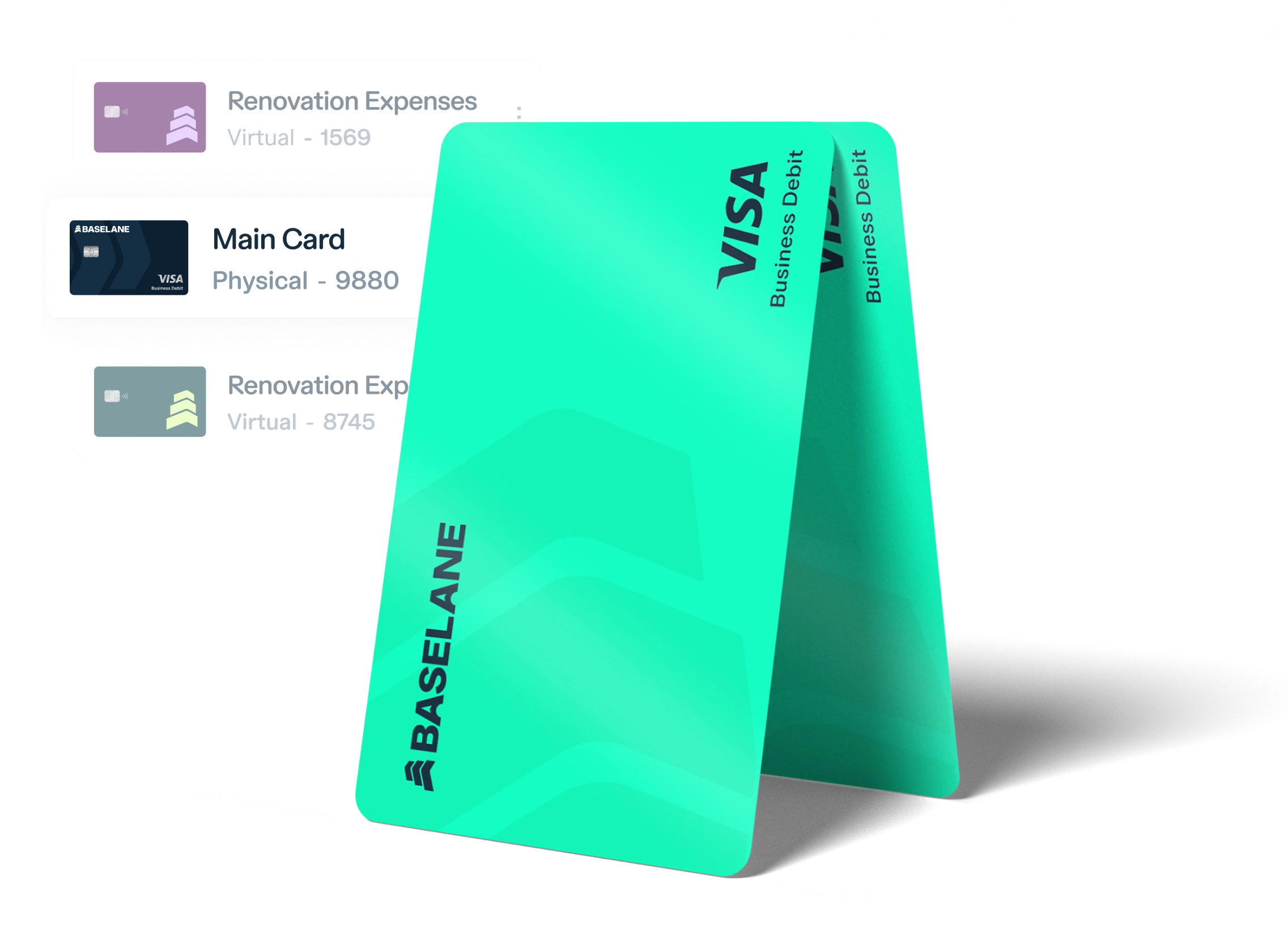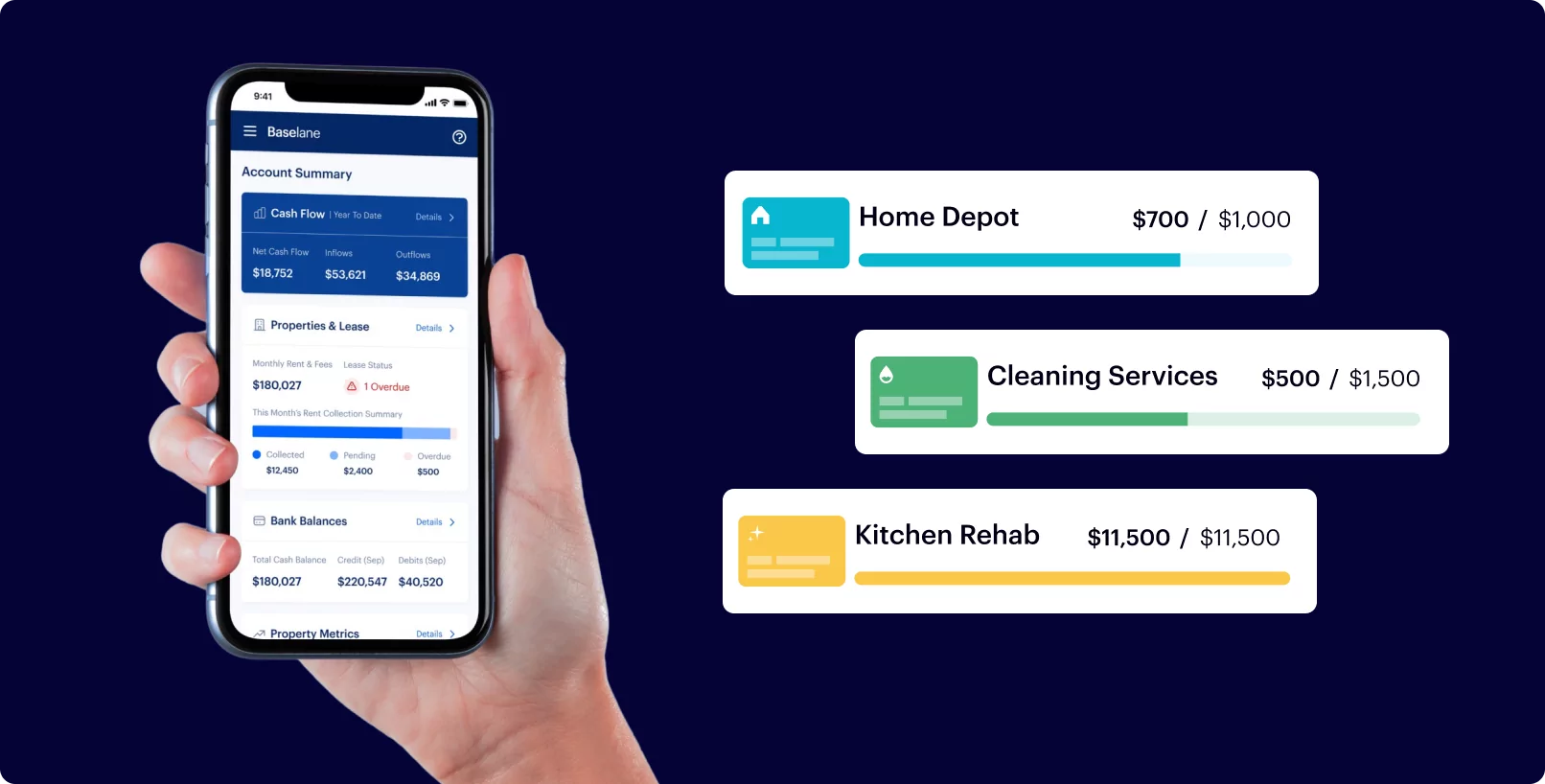Managing rental properties often involves juggling multiple financial tasks, from collecting rent to tracking expenses. A dedicated bank account designed for landlords, especially one supporting ACH payments, can significantly streamline these operations. Choosing the right banking solution is crucial for maintaining organization, complying with regulations, and gaining financial clarity for your real estate investments in 2025.
Key takeaways
- Separate bank accounts for rental properties offer crucial legal protection and simplified bookkeeping.
- ACH payments provide landlords with a reliable, cost-effective, and secure method for collecting rent electronically.
- The right landlord bank account should offer low fees, support for business entities, separate accounts per property, and integration capabilities.
- Recent trends indicate increasing digital adoption and the growing importance of integrated financial platforms for landlords.
- Comparing features like APY (Annual Percentage Yield), fees, sub-accounts, and integrations is essential when selecting a bank account in 2025.
Why landlords need separate ACH bank accounts for rental properties
Operating rental properties involves distinct financial flows that should ideally be kept separate from personal finances. This segregation offers multiple benefits critical for long-term success and compliance. Dedicated accounts provide a clear separation between business income and expenses and personal funds.
Maintaining separate accounts is often a legal requirement, especially when properties are held under a business structure, such as an LLC. This separation helps protect personal assets from potential liabilities related to the rental business. Understanding the appropriate structure of a bank account for multiple rental properties is key, whether you operate as a sole proprietorship business or need a business bank account for an LLC.
Using distinct accounts simplifies bookkeeping and tax preparation significantly. All rental income and expenses are contained within a single, easily traceable location. This makes tasks like generating reports and completing tax forms much more efficient, especially with checking account dividers or property-specific sub-accounts. Clear financial records provide a better understanding of property performance and cash flow.
Separate accounts offer crucial financial clarity for budgeting and analysis. Landlords can easily see income versus expenses for each property or portfolio. This clear view supports informed decision-making regarding investments, renovations, and rent adjustments. It removes ambiguity and provides a real picture of the business’s financial health.
How do ACH payments compare with other options?
Automated Clearing House (ACH) is an electronic network for financial transactions in the United States. It allows for secure money movement between bank accounts. For landlords, this network facilitates direct digital transfers for rent payments.
ACH stands out as a leading electronic payment method due to its reliability and cost-effectiveness. It is generally less expensive to process than credit card transactions. Landlords and tenants benefit from lower fees associated with these direct transfers.
The ACH network offers enhanced security compared to traditional methods like mailing checks. Funds move directly between bank accounts, reducing the risk of checks being lost, stolen, or tampered with. This digital trail provides clear records for both parties.
While traditional ACH transfers may take 1–3 business days to settle, this is often faster and more predictable than waiting for checks to clear. It eliminates the delays associated with physical mail and manual bank deposits.
ACH compares favorably to various other payment methods landlords might use. Unlike checks, it removes the need for manual handling and trips to the bank. Compared to services like Venmo or PayPal, dedicated ACH rent collection tools through landlord platforms often provide better tracking, automation, and legal compliance suitable for business transactions. While tenants might use credit cards, this can incur higher processing fees for the landlord, making ACH a more economical choice for regular rent payments. However, some platforms offer partial rent payments or credit card options as a convenience for tenants.
ACH adoption among tenants and landlords
The ACH network has continued its multiyear growth trend. According to The Clearing House, the ACH network saw a 6.2% annual increase in volume in 2024. This growth reflects a broader shift towards electronic payments across various industries.
For landlords, this translates into greater tenant familiarity and willingness to use ACH for rent payments. Industry reports from 2024 highlight ACH as the leading electronic method among those accepting digital payments. However, nearly half of renters still use checks, indicating a need for platforms that support multiple payment options while encouraging digital adoption.
Challenges landlords face with rent collection
Rent collection is a critical but often challenging aspect of property management. Relying on traditional methods like paper checks presents numerous difficulties. Checks can be lost in the mail, require manual deposit, and carry the risk of bouncing due to insufficient funds.
Managing late or missed payments adds another layer of complexity. Following up with tenants, assessing late fees, and tracking partial payments manually is time-consuming and stressful. Knowing how to collect unpaid rent after a tenant moves out requires diligent record-keeping. These issues directly impact cash flow and profitability.
The administrative burden associated with rent collection extends beyond just receiving payments. It includes generating invoices, sending reminders, tracking payment statuses, and reconciling transactions with bank statements. This manual work takes valuable time away from other aspects of managing and growing a rental business. An efficient banking solution integrated with ACH rent collection significantly reduces this burden.
Essential bank account features for landlords using ACH
Choosing the right bank account is critical for landlords who want to streamline rent collection, protect assets, and track finances effectively. Here are the key features to consider:
Support for business entities (e.g., LLCs)
A rental property bank account should support ownership under a legal entity like an LLC. This structure helps with liability protection and tax benefits. Landlords forming an LLC need a bank that allows account registration under the business name and supports proper documentation for legal compliance.
Low or no banking fees
Minimizing fees is essential to maximizing rental income. Look for accounts with no monthly service fees, no minimum balance requirements, and low or waived fees for ACH and wire transfers. Some banks even offer limited-time promotions, which can save landlords money on large transactions.
Sub-accounts or account separation by property
Being able to create separate accounts or sub-accounts for each property makes it easy to track income and expenses by unit. This structure is crucial for portfolio visibility and simplified accounting.
Landlords can use checking account dividers or banking platforms that support a structured setup for multiple rental homes. Community associations also benefit from this feature with dedicated HOA bank accounts.
Integration with property management tools
The ideal bank account connects seamlessly with rent collection apps or accounting platforms. Integration reduces the need for manual entry and lowers the risk of errors during bookkeeping. It also streamlines rent reconciliation and cash flow tracking across multiple properties.
Online and mobile banking features
Remote account access is a must for busy landlords. A user-friendly mobile app with balance checks, transaction history, and transfer functionality supports on-the-go management. Choose a bank that offers a reliable digital experience with consistent mobile and desktop performance.
FDIC insurance protection
Understanding deposit insurance is key to protecting your funds. Most accounts come with $250,000 in standard FDIC coverage1 per depositor, per bank, per ownership category. Some platforms, like those partnered with Thread Bank, extend this protection using sweep programs that distribute funds across multiple banks, offering higher total coverage.
Competitive Annual Percentage Yield (APY)
While reserve funds may not sit idle for long, choosing an account that offers a strong APY helps you earn interest on deposits like capital reserves or security deposits. Rates vary widely depending on account type and balance, so compare carefully to get the best return without sacrificing liquidity.
Top bank accounts with ACH for landlords in 2025
Several banking platforms cater specifically to the needs of landlords and real estate investors, offering features crucial for efficient management and ACH integration. These options range from specialized landlord platforms to small business accounts with landlord-friendly features.
When searching for the [best business account for real estate agents], landlords often find options suitable for property management as well. Comparing their offerings based on key landlord requirements is vital for making an informed decision in 2025.
Dedicated landlord platforms like Baselane are designed with rental property management workflows in mind, often including integrated rent collection and bookkeeping features that utilize ACH. General small business banks like Bluevine may offer competitive rates and features suitable for business finances, but might lack the specialized property management tools.
Here is a comparison of some leading options based on features relevant to landlords using ACH:
| Feature | Baselane | Stessa | Bluevine |
|---|---|---|---|
| APY | Up to 3.35% APY² | 2.31% (higher on paid plan) | 1.50% (higher on paid plan) |
| Monthly Fees | $0 | $0-$95 | $0-$28 |
| ACH Fees | $0 | $0 | $0 ($5-$10 for same-day) |
| Minimum Balance | None | None | None |
| Separate Accounts Per Property | |||
| Rent Collection | ACH, Credit/Debit | ACH | |
| Accounting Integration |
How to open a bank account for your rental property
Opening a bank account for your rental property business involves a few key steps and requires specific documentation. The exact requirements can vary depending on the bank and the legal structure of your business. Preparing the necessary paperwork in advance streamlines the process.
Commonly required documents include your Employer Identification Number (EIN) if operating as an LLC, partnership, or corporation. Sole proprietors may be able to use their Social Security Number, but obtaining an EIN is often recommended for business banking. Banks will also require documentation proving your business formation, such as Articles of Organization for an LLC.
You will typically need to provide personal identification for the account signatories, such as a driver’s license or passport. Be prepared to provide details about your business, including its name, address, and nature of operations (rental property). Online banks often have a straightforward application process that can be completed quickly.
Choosing an online platform specialized for landlords can simplify the application process.
These platforms understand the unique needs of real estate investors and tailor their onboarding to accommodate them. The steps usually involve filling out an online application, uploading required documents, and funding the account.
Choosing the right bank for your rental business
Selecting the optimal bank account is a strategic decision for any landlord aiming for efficiency and profitability. Consider how the account’s features align with your specific needs, portfolio size, and management style. Evaluate the importance of low fees, the ability to organize funds by property, and integration capabilities with your preferred rent collection or property management software.
Think about the volume and type of transactions you expect to process. Ask yourself:
- Will you primarily use ACH for rent, or do you need flexibility for other payment types?
- Does the bank offer competitive APY on balances you might hold?
- Do they support the legal entity under which you operate your rental business?
The ideal bank account serves not just as a place to hold money but as a tool that simplifies operations and provides valuable financial insights. Look for features like automated transaction categorization and detailed reporting. These capabilities can save significant time during tax season and provide a clearer picture of your financial performance. Ultimately, the best choice is one that helps you streamline tasks, gain financial clarity, and supports the growth of your rental property business.
Bottom line
Choosing the right bank account is a fundamental step for landlords aiming to manage their rental properties efficiently and profitably in 2025. Accounts offering robust ACH capabilities are essential for modern rent collection. Features like separate accounts per property, low fees, and integration with management tools are critical for organization and streamlined workflows.
By selecting a banking platform designed with landlords in mind, you can simplify bookkeeping, gain financial clarity, and protect your assets.
Consider exploring solutions that integrate banking, rent collection, and bookkeeping to take back time and gain clarity and control over your rental finances.
FAQs
ACH rent payment is an electronic money transfer from a tenant's bank account directly to a landlord's bank account using the Automated Clearing House network. It provides a secure and efficient way to collect rent digitally.
Using separate bank accounts helps landlords maintain legal separation between personal and business finances. It simplifies bookkeeping, makes tax preparation easier, and provides clear financial insights into the performance of each rental property.
ACH transactions typically take between 1 and 3 business days to settle. While not instant, this is generally faster and more predictable than waiting for paper checks to clear.
Yes, many landlord-focused banking platforms allow you to create unlimited separate accounts or sub-accounts for each property. This feature is highly beneficial for organizing finances and tracking the performance of individual properties.
Many modern banking platforms designed for landlords offer accounts with no monthly fees or minimum balance requirements. While the account itself might be free to open, other fees may apply depending on specific transactions or premium services.








